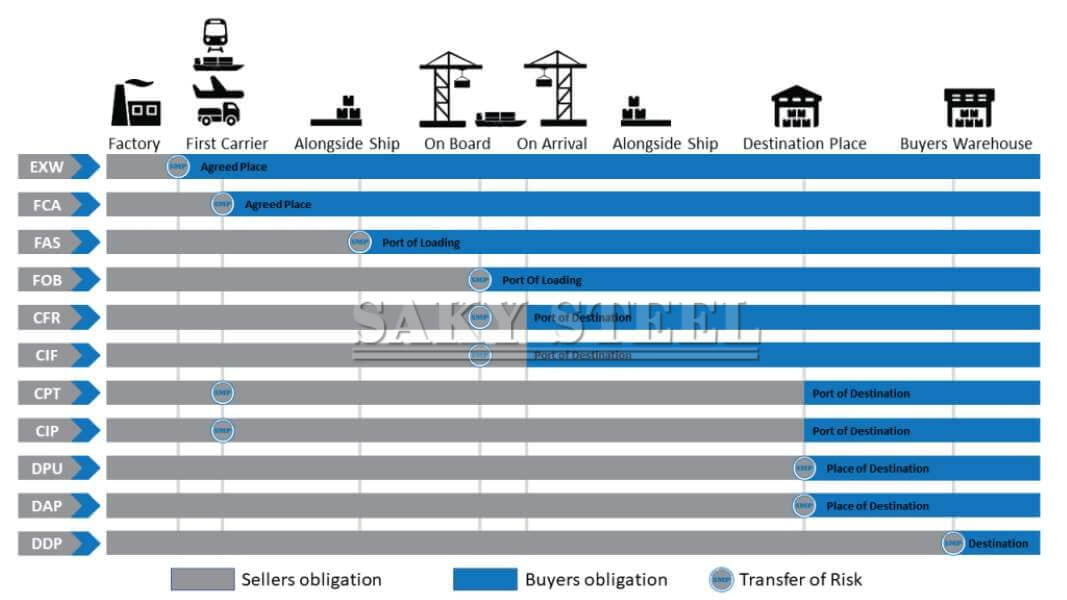Rules for Different Modes of Transport:

EXW – Ex Works (Named Place of Delivery):
EXW is often used in initial price quotations where no additional costs are included. Under EXW, the seller makes the goods available at their premises or another designated location (factory, warehouse, etc.). The seller is not responsible for loading the goods onto any collection vehicle or handling export customs clearance.

FCA – Free Carrier (Named Place of Delivery):
FCA can have two different meanings, each with varying levels of risk and cost for both parties:
• FCA (a): Used when the seller delivers the goods at a designated location (seller's premises) after completing export customs clearance.
• FCA (b): Used when the seller delivers the goods at a designated location (not the seller’s premises) after completing export customs clearance.
In both cases, the goods can be handed over to a carrier nominated by the buyer or another party designated by the buyer.

CPT – Carriage Paid To (Named Place of Destination):
Under CPT, the seller covers the cost of transporting the goods to the agreed-upon destination.
CIP – Carriage and Insurance Paid To (Named Place of Destination):
Similar to CPT, but the key difference is that the seller must purchase minimum insurance coverage for the goods during transportation.
DAP – Delivered At Place (Named Place of Destination):
The goods are considered delivered when they arrive at the agreed destination, ready for unloading, at the buyer's disposal. Under DAP, the seller bears all risks involved in bringing the goods to the specified location.
DPU – Delivered at Place Unloaded (Named Place of Destination):
Under this term, the seller must deliver and unload the goods at the designated location. The seller is responsible for all transportation costs, including export duties, freight, unloading at the destination port by the main carrier, and any destination port charges. The seller also assumes all risks until the goods reach the final destination.

DDP – Delivered Duty Paid (Named Place of Destination):
The seller is responsible for delivering the goods to a specified location in the buyer’s country or region, covering all costs, including import duties and taxes. However, the seller is not responsible for unloading the goods.

Rules for Sea and Inland Waterway Transport:
FAS – Free Alongside Ship (Named Port of Shipment)
The seller fulfills their delivery obligation once the goods are placed alongside the buyer’s designated vessel at the agreed-upon port of shipment (e.g., dock or barge). Risk of loss or damage is transferred to the buyer at this point, and the buyer assumes all costs from then on.
FOB – Free On Board (Named Port of Shipment)
The seller delivers the goods by loading them onto the buyer’s designated vessel at the specified port of shipment or securing goods already delivered in this manner. The risk of loss or damage transfers to the buyer once the goods are on board, and the buyer assumes all costs from that moment.

CFR – Cost and Freight (Named Port of Destination)
The seller delivers the goods once they are on board the vessel. The risk of loss or damage transfers at that point. However, the seller must arrange transportation to the agreed-upon port of destination and cover the necessary costs and freight.

CIF – Cost, Insurance, and Freight (Named Port of Destination)
Similar to CFR, but in addition to arranging transportation, the seller must also purchase minimum insurance coverage for the buyer against the risk of loss or damage during transit.

Post time: Mar-26-2025